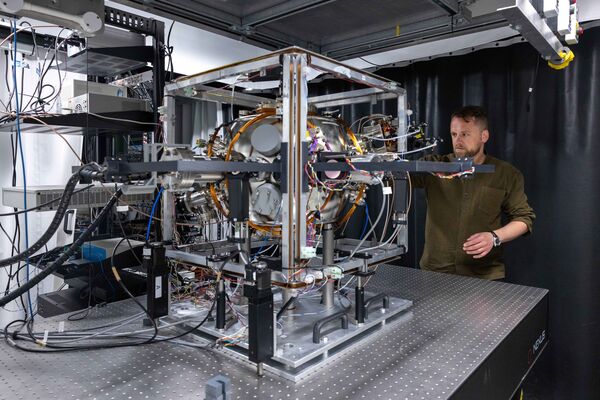
The quantum accelerometer has been developed by Imperial College London. (Imperial College London)
A prototype quantum sensor device developed by Imperial College London completed the first period of at-sea testing onboard the UK Royal Navy (RN) trials and experimentation vessel XV Patrick Blackett .
The experiment is seen as a potential first step in understanding the application and exploitation of quantum-enabled navigation, which could provide significant navigational advantages when operating in environments where global navigation satellite systems (GNSS), such as Global Positioning System (GPS), are degraded or denied.
The quantum sensor developed by Imperial College London is a type of accelerometer. While conventional accelerometers are used in many different devices such as mobile phones and laptops, these sensors cannot maintain precise accuracy over long periods of time without an external reference to correct ‘drift'.
According to Imperial College London, the quantum sensor – which uses ultra-cold atom interferometers to make highly accurate measurements – has the potential to remove this drift, and so significantly improve positional accuracy over long timescales. When cooled to extremely low temperatures the atoms start to display their ‘quantum' nature, resulting in wave-like properties. As the atoms move through the sensor, an ‘optical ruler' is formed by using a series of laser pulses – this allows the acceleration of the atoms to be precisely measured.
Patrick Blackett is part of the RN's NavyX organisation, which functions as an innovation, autonomy, and lethality accelerator to test and evaluate new technologies and concepts. For the purposes of the trial, undertaken in May 2023 while Patrick Blackett
Looking to read the full article?
Gain unlimited access to Janes news and more...







